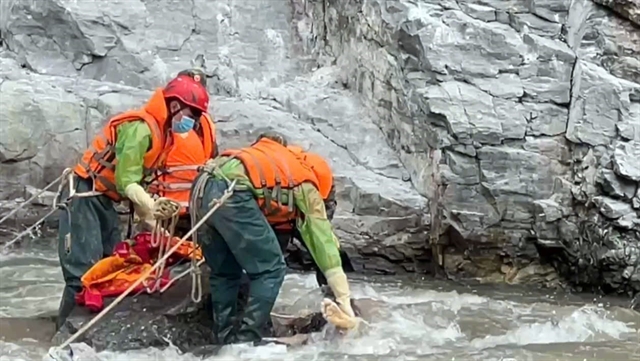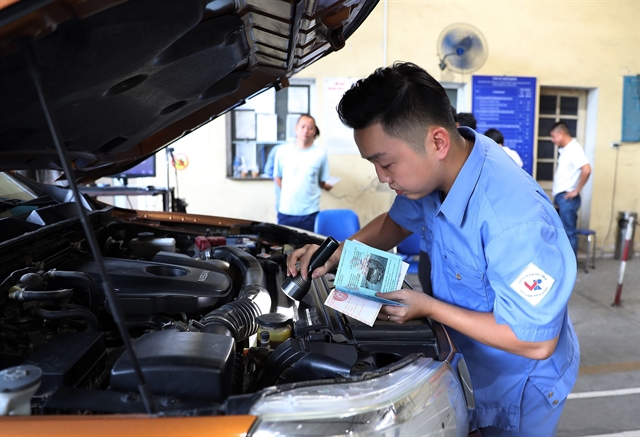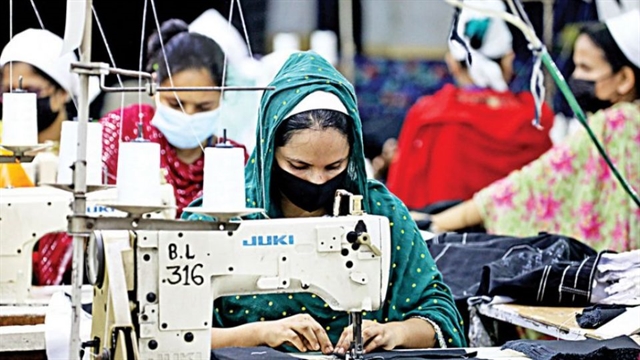

Teed off with Robert Bicknell
 |
by Robert Bicknell
According to Facebook posts, a golfer here in Viet Nam was killed by another player following the round. Why it happened is not known to me, and it hasn’t stopped many people from speculating. I will not speculate as I was not there. It’s bad enough that a tragedy occurred for whatever reason.
I would prefer to believe that it was an accident because I don’t want to believe that players in Viet Nam have a violent nature. Generally, I have seen a few heated situations where shouting is usually as bad as it gets.
Yes, a more than a few times caddies were struck by a player. In those cases, club management got involved immediately and the situation resolved, including a voluntary act of contrition and compensation to the caddie by the player.
Yes, I have seen a knock-down drag out 3 on 1 fight in a kiosk back in 2001 involving players from another “Asian nation” with a reputation for hot tempers. Blood was spilt, charges filed and memberships suspended. Amazingly enough, once the heat of the moment passed, they all agreed to meet and made peace.
Nobody got killed, but I could see that it could have been much worse had the marshals and I not intervened to break it up. (We were there within 90 seconds).
It was a dangerous situation that was handled properly by the staff. Fortunately, that is the only time I have seen things get that bad in a golf club over the last 26 years here in Viet Nam.
So, what causes violence on a golf course? Isn’t golf supposed to be a game for gentlemen?
The most common trigger for anger is, of course, the caddie – player relationship. Not all caddies are superstars. Sometimes we consider ourselves lucky if the caddie doesn’t trip over the ball. Now, consider hot weather, the player not scoring well, a moderately large bet on the line and the caddie makes a few mistakes. This is a recipe for a bomb waiting to go off.
At my clubs, part of the caddie training is knowing how to NOT trigger the bomb. They see the signs and take steps to lower the temperatures. Yes, there are ways to do this.
Anger in the clubhouse occurs when a player had a bad day on the course and then the restaurant screws up the food or drink order, or at reception when the player feels the bill is incorrect. Yes, it happens from time to time. Again, staff have procedures to deal with the situation and de-escalate it.
When they see it isn’t calming down, that’s when the call the club manager to step in. I have yet to see a situation where I couldn’t bring the heat down immediately and resolve it within two-three minutes. GM’s have both the experience and the power to fix anything when it becomes necessary.
So, what triggers anger amongst players? Aren’t they friends?
In a nutshell, the biggest reason for arguments and fights involve betting. The bigger the bet, the bigger the heat. Add in the above mentioned spices: hot weather, playing poorly, etc, and you have a pressure cooker bomb just waiting to go off.
The moment someone infers someone cheated, broke a rule, or lied about a handicap, that bomb is going off. The only question is how big the blast will be.
In most cases, it only hurt feelings and some harsh words, followed by eventually by apologies.
If it’s a very large bet, the accusations can get stronger and the two parties begin a backstabbing verbal campaign against each other. This is very tiresome for the staff of the club because they really don’t want to get involved unless it’s a club tournament. But again, we have procedures. If someone claims someone else is sandbagging their handicap, we have ways to check it.
Look, if you feel cheated by another player, just refuse to play with him/her ever again. If enough people stop playing with them, they’ll get the hint.
Also, if you’re going to bet, never make it more than you are willing to lose. Keep it reasonable.
The bottom line is golf is supposed to be an enjoyable recreational past time. It’s not worth getting hurt over. VNS





.jpg)



